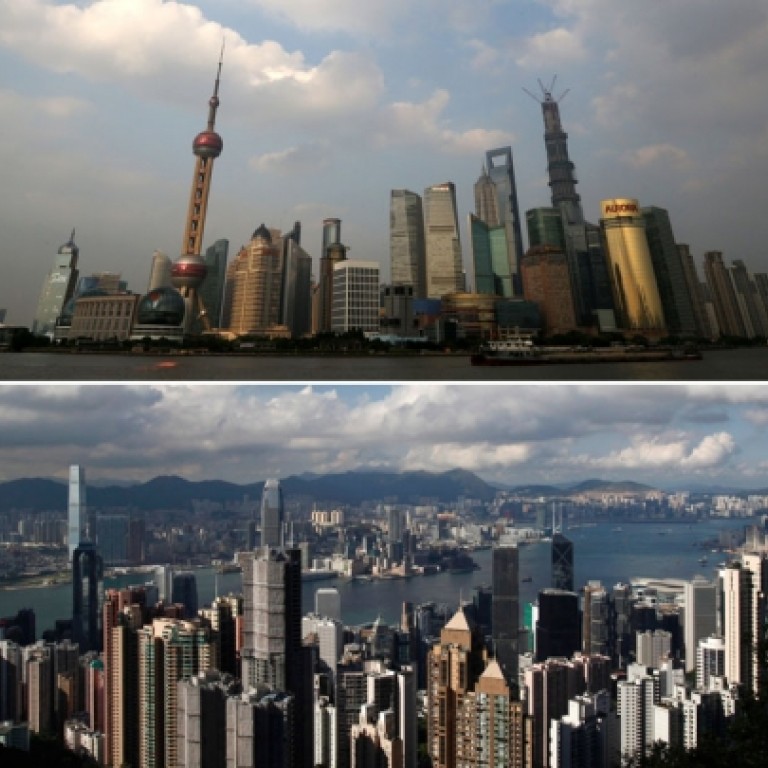
Shanghai's free-trade zone puts Hong Kong's future in the spotlight
Hong Kong needs to assess what strengths can help maintain its financial hub status, as the rival mainland city bids to usurp it with its latest deal
Will the new Shanghai free-trade zone be a game changer?
This question popped up in my mind when I read the breaking news on Wednesday evening about Beijing’s landmark approval to set up a free-trade zone in Shanghai.
To my surprise, when I looked for related reports the following day, the news about Shanghai’s latest victory in winning policy support from the central government had not made it to the front pages of any major Chinese-language newspapers in Hong Kong.
“Is Hong Kong too self-confident or too self-centred?” I asked my colleagues.
For Shanghai, things moved quickly after Premier Li Keqiang visited the Pudong New Area and trade and port facilities in the city in late March. By the end of June, Li had made his decision, and on July 3, state broadcaster CCTV said the State Council had issued an announcement after a meeting chaired by Li that the free-trade zone in Shanghai would be a snapshot of an “upgraded Chinese economy”.
Shanghai’s ambitions to become the nation’s economic engine, leapfrogging Hong Kong as the dominant financial hub in the region, are already an open secret. Shanghai mayor Yang Xiong said after the announcement that the city’s future hinged on the free-trade zone, which could give it a leg up over rivals.
Rivals? Who? Yang did not name any.
To be more realistic, the new free-trade deal for Shanghai, which the cabinet wants to be run on a trial basis in the first phase and then see if such a special zone model can be expanded or copied to other mainland cities, would not immediately threaten Hong Kong’s leading position as one of the world’s most important financial centre cities and also one of the busiest ports.
But in the long run, the Hong Kong government must ask itself what competitive strengths and advantages are unique to the city; and whether these can be kept for the next decade or two. If not, then how can Hong Kong stay competitive, rather than becoming just another mainland city, lagging behind top-tier cities like Shanghai.
The central government is keen to use the free-trade zone in Shanghai as a testing ground for more financial liberalisation, as it supports the city’s ambition to grow into one of the world’s three most important financial centres – on a par with New York and London – by 2020.
Qianhai, just an hour’s drive from Hong Kong, has already been picked by Beijing to explore the possibilities of full convertibility of the yuan, which the government wants to turn into a global currency. Purely from an economic perspective, the time left for Hong Kong to rethink its future is obviously quite limited.
On Wednesday evening, before the news about Shanghai came out, I was watching television at home. I saw Chief Secretary Carrie Lam Cheng Yuet-ngor talking again about budget issues for the West Kowloon arts project.
Time is money, and we spend way too much time just talking about things like West Kowloon when other cities are already taking action and know with crystal clarity what they want to achieve.

